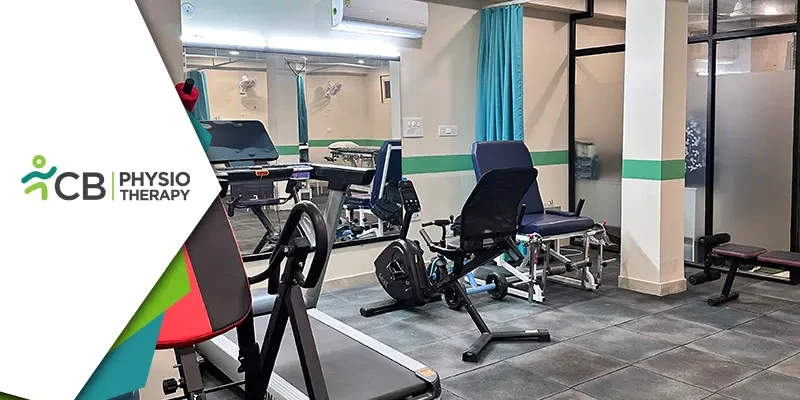In today's fast-paced world, where sedentary lifestyles and desk-bound jobs are the norm, the importance of maintaining physical wellness cannot be overstated. In-clinic physiotherapy has emerged as a cornerstone in promoting local wellness by addressing a myriad of musculoskeletal issues and promoting overall health. This comprehensive approach to rehabilitation offers a multitude of benefits that extend beyond just physical healing. Let's delve into the top benefits of in-clinic physiotherapy and how it enhances local wellness.
Treatment Effectiveness and Personalized Care:
1: Personalized Treatment PlansOne of the significant advantages of in-clinic physiotherapy is the development of personalized treatment plans tailored to individual needs. Physiotherapists assess the patient's condition thoroughly, taking into account medical history, lifestyle, and specific goals. This personalized approach ensures that treatment targets the root cause of the problem, leading to more effective outcomes.
2: Hands-On Therapy
In-clinic physiotherapy allows for hands-on therapy guided by experienced professionals. Therapists use various techniques such as manual therapy, massage, and joint mobilization to alleviate pain, improve mobility, and restore function. This hands-on approach accelerates the healing process and enhances the overall efficacy of treatment.
3: Specialized Equipment and Facilities
Unlike home-based exercises, in-clinic physiotherapy offers access to specialized equipment and facilities that aid in rehabilitation. From resistance machines and balance boards to ultrasound and electrotherapy devices, these resources enhance the effectiveness of treatment and enable patients to achieve better results in a controlled environment.
4: Progress Tracking and Monitoring
In-clinic physiotherapy provides a structured framework for progress tracking and monitoring. Therapists regularly assess the patient's condition, monitor improvements, and adjust treatment plans accordingly. This proactive approach ensures that progress is monitored closely, leading to optimal outcomes and a faster return to normal function.
5: Pain Management
Chronic pain can significantly impact an individual's quality of life, limiting mobility and impairing daily activities. In-clinic physiotherapy offers effective pain management strategies through a combination of therapeutic exercises, manual therapy, and modalities such as heat and cold therapy. By addressing pain at its source, physiotherapy helps patients regain control over their lives and improves overall well-being.
6: Improved Mobility and Function
Whether recovering from an injury, surgery, or managing a chronic condition, in-clinic physiotherapy focuses on improving mobility and function. Through targeted exercises and interventions, therapists help patients regain strength, flexibility, and range of motion, enabling them to perform activities of daily living with greater ease and confidence.
7: Prevention of Recurrence
In-clinic physiotherapy goes beyond just treating existing injuries; it also plays a crucial role in preventing recurrence. By addressing underlying imbalances, weaknesses, and biomechanical issues, physiotherapists help reduce the risk of future injuries and promote long-term musculoskeletal health. This preventive approach is essential for maintaining local wellness and minimizing healthcare costs in the long run.
Holistic Wellness and Patient Empowerment:
1: Psychological Well-beingPhysical health and psychological well-being are closely interconnected, and in-clinic physiotherapy addresses both aspects of wellness. The supportive environment of a clinic, coupled with the encouragement and guidance of therapists, boosts patients' morale and motivation. As patients see progress in their physical abilities, it often translates to improved self-esteem, confidence, and overall mental health.
2: Holistic Approach to Wellness
In-clinic physiotherapy adopts a holistic approach to wellness, recognizing the interconnectedness of body, mind, and spirit. Therapists consider not only the physical symptoms but also the emotional and social factors that may impact recovery. By addressing the individual as a whole, physiotherapy promotes comprehensive well-being and fosters a sense of wholeness and balance.
3: Education and Empowerment
In addition to hands-on treatment, in-clinic physiotherapy emphasizes patient education and empowerment. Therapists educate patients about their condition, proper body mechanics, and preventive strategies to minimize the risk of future injuries. By empowering patients with knowledge and skills, in-clinic physiotherapy promotes long-term wellness and encourages active participation in self-care.
In conclusion, in-clinic physiotherapy offers a multitude of benefits that enhance local wellness on multiple levels. From personalized treatment plans and hands-on therapy to education, empowerment, and preventive care, physiotherapy plays a pivotal role in promoting musculoskeletal health and overall well-being. By investing in in-clinic physiotherapy, individuals can optimize their physical function, manage pain, and improve their quality of life for years to come.
Experience the transformative vitality – optimize your physical function, manage pain, and improve your quality of life. Contact us today to embark on your wellness journey.

